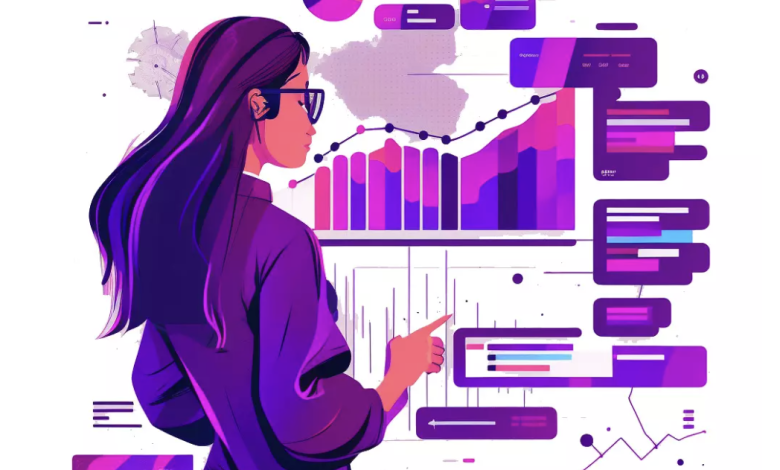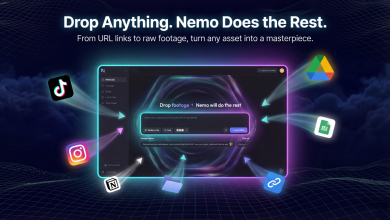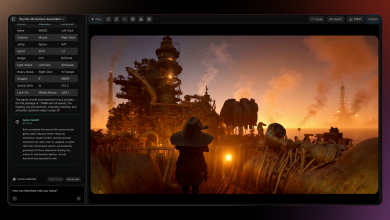
Marketers don’t need more dashboards, they need understanding. The future of AI in marketing isn’t automation, it’s comprehension.
For the last 30 years, marketers have been told to believe data is power. That’s how I acquired a lucrative career in data analytics at the age of 23. My team built hundreds of dashboards, with management thinking that if we just visualized the data more or better, we’d learn something. But that never happened.
Dashboards became the pretty wallpaper of corporate America’s desktop screens… impressive to behold but rarely understood, much less acted upon.
Most marketers I’ve worked with fall into one of three groups:
- The data silo genius; amazing at analyzing one data set, i.e. paid media or email, but unable to connect that to a larger picture.
- The gut-instinct creatives; intimidated by data and defaulting to pure intuition. This intimidation manifests in ranges from combativeness to politely ignoring me.
- The data-curious strategic thinker; they believe in the data, know that it matters and are hungry to make smarter decisions but are entirely dependent on the quality of their data analyst, dashboards that were not customized for their specific moment of need, and tools that assume mathematical fluency they don’t have.
That’s the real problem.
Dashboards. They don’t help any of them. They offer the illusion of control while quietly nurturing more confusion and distrust of the data. They overwhelm people with noise, instead of clarity. They show you what happened but not why, and they never explain nor educate.
Dashboards became the analytics checkbox of all marketing teams. Yet, more data and more dashboards don’t mean better decisions. Usually, they mean more dysfunction.
I’ve seen this movie play out over the last 3 decades in companies large and small: Marketers fixate on their pet metrics like Return on Ad Spend or ROI without understanding the underlying conflicts it has with other data sets from different platforms. Teams optimize for click-through rates and engagement while ignoring lagging indicators like Lifetime Value or Cost per Acquisition. And now comes the latest wave of conversational AI for analytics.
The pitch is seductive. “Just ask your data a question.” AI tools can give fast answers, but to what question? What was the quality of the question? If you never spoke the language of data in the first place, a chatbot won’t help. It just speeds up the misunderstanding.
We shouldn’t have been building dashboards for the sake of dashboards; we should have been delivering understanding, and the way to get there is radically simple. Observation. Implication. Recommendation.
An observation is the description of what is happening in the data.
The implication explains why it matters to the business.
Recommendations; well, this is all the marker actually wants in the end.
We don’t need gorgeously color-coded charts, massive spreadsheets, or quarterly slide presentations. We just need a story in plain-language narrative that connects dots and creates meaning.
I read early on that Amazon had a ‘no slide’ presentation policy. After seeing the abysmal open rates on my dashboards, only to spike during the monthly meetings where I was presenting, I finally realized why. Executives weren’t waiting for the data, they were waiting for the interpretation… for someone to tell them what it meant. So I chucked dashboards too!
I’ve been writing marketing analytics narratives for the last decade and the impact is astounding. Customers see 6 times ROI on services, not because they receive prettier charts, but because we make sense of the chaos for them in such a way that allows them to act now. The narratives help them move forward fearlessly.
This is where the promise of AI gets really exciting. AI can take that same storytelling power and scale it across entire organizations. It can give every analyst, even the quiet introverts, a stronger voice. The introvert. The non-native English speaker. The one who’s brilliant at mathematics but struggles to find business meaning. LLMs can help them communicate with the precision and confidence their insights deserve. And now that power extends to the marketer too. When data starts speaking clearly and directly, marketers finally gain the power to connect data to meaning.
Most people who use AI regularly at this stage understand that it will not replace them, but it will raise the starting point of expertise and maturity. I’ve watched this shift happen quietly for decades, and I’ve never been more certain: the marketers who thrive next aren’t the ones with dashboards; they’re the ones with questions.
The best junior marketers, the ones who ask questions, embrace nuance, and use AI in all forms in personal and professional life will outpace the veterans who today still struggle with their faith in data. AI will shine a light on who actually understands the why behind the what and at what depth.
AI won’t reward tenure, it’ll reward curiosity and expansive thinking. The next wave of marketing success belongs to the learners, not the knowers.
Dashboards won’t evolve, they’ll disappear. This next generation of marketing tools won’t just show you the data, they’ll think with you in that moment of decision making. They’ll contextualize, translate and guide you as a thought partner – like a strategist who’s always on, omniscient and a great storyteller.
Analytics used to be the behind-the-scenes support crew for marketing, tracking KPIs, spotting growth patterns, and feeding reports. But now, we can model, identify, and answer deep business questions in real time. If that keeps advancing, the traditional analytics function could disappear altogether, and the few data scientists left might finally get to tackle bigger problems, like climate change or building AI that truly benefits humanity.
Everyone likes to talk about AI taking jobs in marketing, but speed and scale aren’t what will define the future. The real transformation is in trust and comprehension. We’ll finally say goodbye to our dashboards as the business crutch they’ve become and start choosing genuine insight and clarity over endless streams of “data.”
AI won’t do the thinking for us, but it will help us think more clearly. In our world drowning in data, saying goodbye to the dashboard will be the most powerful change of all.
Mia Umanos Bio
Mia Umanos is a Filipino-American entrepreneur, AI strategist, and the CEO & co-founder of Clickvoyant, a Techstars-backed analytics platform that delivers enterprise-grade marketing insights in minutes. With over 16 years of experience in digital marketing, analytics, and AI product development, she has worked with global brands including Apple, Salesforce, and Netflix.
A pioneer in AI-driven marketing intelligence, Mia successfully raised $1.4 million in six months while pregnant, underscoring her grit and leadership. She was named a 2024 Tory Burch Fellow, earned a spot in the highly competitive TechStars accelerator, and is recognized as one of 50 women entrepreneurs worldwide for innovation in AI business intelligence.
Her mission is to ensure AI enhances human creativity rather than replaces it. Deeply connected to her Filipino heritage, Mia actively creates remote tech opportunities for women in provincial areas of the Philippines. She also co-hosts AI KID You Not, a podcast with her daughter making AI approachable for families.




